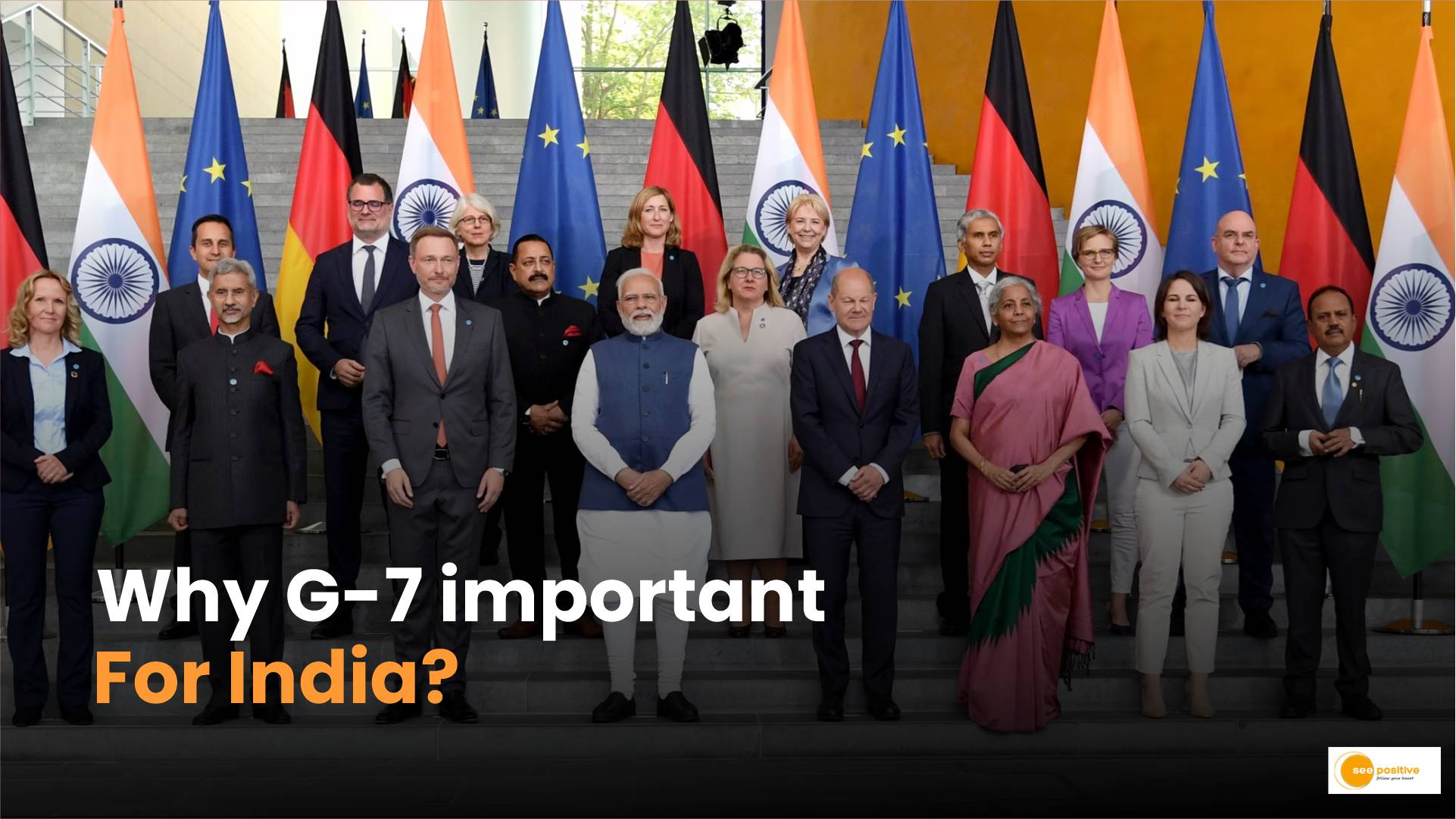Prime Minister Narendra Modi, after assuming power at the Centre for the third consecutive time, embarked on his first foreign trip by heading to Italy to participate in the G7 Summit. This visit highlights the growing significance of India’s role on the global stage. But what exactly is the G-7, and why is it important for India?
Understanding G-7
The Group of Seven (G-7) is a coalition of the world’s major advanced economies. Its members include the United States, the United Kingdom, France, Canada, Japan, Italy, and Germany.
This organization was established on March 25, 1973, initially known as the G-6, then G-7, and briefly the G-8 when Russia was a part of it. However, Russia was later expelled due to geopolitical tensions, particularly following its annexation of Crimea.
The G-7 focuses on addressing global issues such as economic policies, international security, and climate change. It works to protect human rights, democracy, and sustainable development.
Unlike many international organizations, the G-7 does not have a permanent secretariat or headquarters. Instead, its presidency rotates annually among its member states, which host and set the agenda for the annual summit.
Significance of G-7
Economic Influence
- Global Economic Powerhouse: G-7 member countries represent about 45% of the global GDP and are among the world’s largest economies. This makes the G-7 a powerful forum for discussing and influencing global economic policies.
- High Per Capita Income: Seven out of the top 15 countries in terms of per capita income are members of the G-7, showcasing the economic affluence of these nations.
Trade and Aid
- Major Exporters: The countries in the G-7 are among the top 10 global exporters, indicating their significant role in international trade.
- Leading Donors: G-7 countries are also among the largest contributors to United Nations initiatives, reflecting their commitment to global development and humanitarian efforts.
Policy Forum
- Addressing Global Issues: The G-7 serves as a critical platform for discussing and addressing pressing global issues, including economic stability, climate change, and geopolitical conflicts.
Current G-7 Summit in Italy
Key Issues on the Agenda
The 50th G-7 Summit in Italy is set to address several critical global issues:
- Climate Change: Strategies to combat climate change and promote environmental sustainability.
- Geopolitical Conflicts: The Middle East situation and the ongoing conflict between Israel and Gaza.
- Ukraine-Russia War: The President of Ukraine will participate in sessions related to the conflict.
- Artificial Intelligence: Discussions on the impact and regulation of AI.
- Migration and Energy: Tackling challenges related to migration and sustainable energy solutions.
India’s Participation
Although India is not a member of the G-7, it has been invited to participate as an Outreach Country. This marks the 11th time India is participating in a G-7 meeting and the 5th time for Prime Minister Modi. India’s presence at the G-7 highlights its growing global influence and its role as a key player in addressing international issues.
Importance for India
- Global Policy Influence: Participation allows India to influence discussions on global policies and advocate for its interests.
- Economic Collaboration: Engaging with the world’s largest economies provides opportunities for economic collaboration and investment.
- Strategic Partnerships: India can strengthen its strategic partnerships with countries like the United States and Japan, especially in countering regional challenges posed by China’s expansionist policies.
- Democratic Values: India’s participation underscores its status as the world’s largest democracy and aligns with the G-7’s commitment to democratic principles.
Also Read: An In-Depth Look at the Facilities of Union Cabinet Ministers in India
Conclusion
Prime Minister Modi’s participation in the Summit in Italy is a testament to India’s rising global stature. The G-7, as a forum of the world’s leading economies, plays a crucial role in shaping global policies and addressing pressing issues.
India’s involvement in this discussions not only highlights its importance on the world stage but also provides an opportunity to collaborate on solutions for global challenges, bolster economic growth, and reinforce strategic partnerships.


